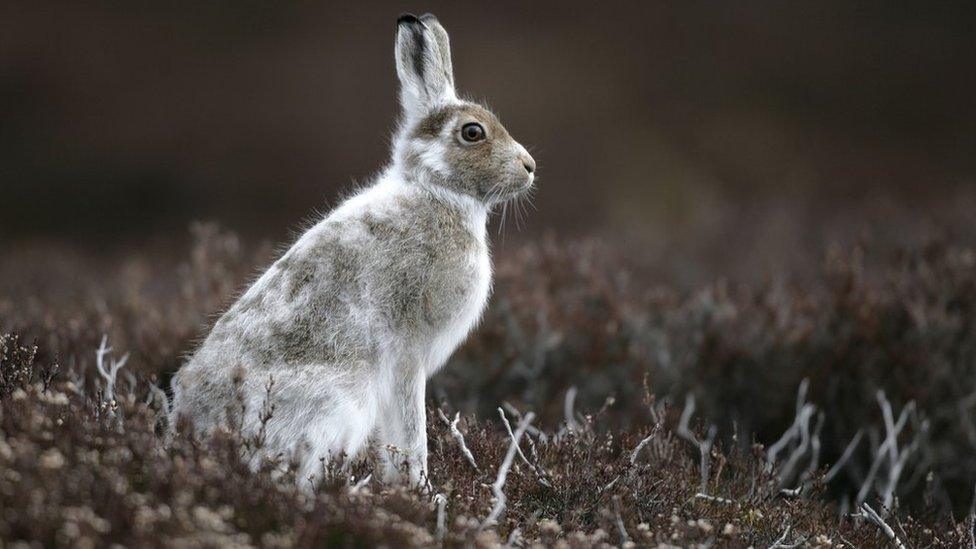Call for immediate ban on hare culls in Scotland
- Published

A conservation charity wants an immediate ban on mountain hare culls.
RSPB Scotland said data provided to the EU by Scottish Natural Heritage (SNH) suggests numbers have fallen by more than 90% in some areas.
Some landowners say reasons for culls include reducing the risk of a tick-borne disease spreading to grouse.
The Scottish government has said it expects to receive its own report on grouse moor management within "the next few weeks".
The Game & Wildlife Conservation Trust (GWCT) said its research suggested hares had increased on estates managed for grouse shooting.
RSPB Scotland has called on the Scottish government to stop culls until the animals' conservation status improved and measures are in place to better protect the species.
The charity's Duncan Orr-Ewing said hare populations had "declined precipitously", and "urgent action" was needed regulate estates' culls.
He said: "Self-regulation and claimed 'voluntary restraint' from culling by the industry has been nothing short of a pitiful failure.
"We urge the Scottish government to take action where the industry has not and to urgently increase the protection of mountain hares in Scotland until their status is secured."
'Increasing predation'
GWCT said data from hunting records across Europe suggested mountain hare numbers "tend to fluctuate in cycles".
It said using SNH-approved methods to count hares, it had found "robust numbers" at sites close to areas where conservationists said there were no hares.
GWCT said the range of hares had fallen in areas with no grouse shooting, such as in south west Scotland, but increased on grouse shooting estates, including in north-east Scotland.
In a statement, the trust said: "Habitat change resulting from loss of moorland to forestry and increasing predation in areas where no control takes place should be the primary concern to everyone with an interest in the conservation status of mountain hares."
Last year, research suggested the number of mountain hares on moorland in the eastern Highlands was at less than 1% of their levels in the 1950s.
The study drew on data from one of Scotland's most renowned ecologists, the late Dr Adam Watson.
Conservation groups called for an end to the "indiscriminate and ruthless" mountain hare culls then.
Moorland managers said they found the report's conclusions "staggering" and at odds with their own experience.
A Scottish government spokeswoman said: "We have commissioned a report on aspects of grouse moor management, including mountain hare culling, from an independent group led by Prof Alan Werritty.
"We expect this report in the next few weeks and we will consider any recommended actions, alongside all other evidence, in deciding whether further regulation is required."